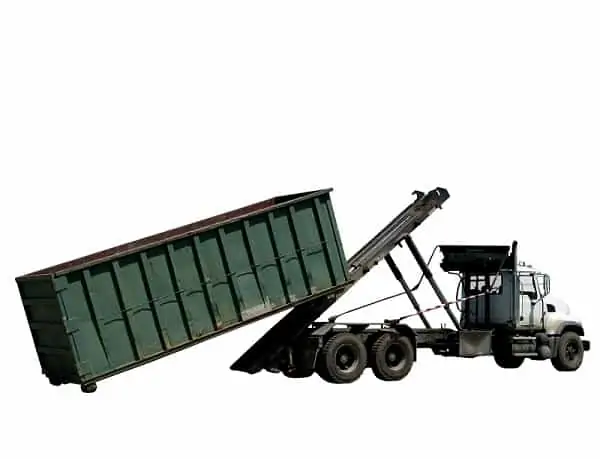Many items come into our lives for a moment that we believe to be recyclable, but often we are wrong and end up doing more damage than good – despite our intentions.
For example, you have ordered a takeout meal for your family, and the boxes are cardboard. All of that waste can be recycled, so you do not need to feel guilty about it, right? Actually, the food waste and grease that has gotten onto the containers means they are no longer recyclable.
Eagle Dumpster Rental of Frederick County rents dumpsters to customers across Burkittsville, Maryland and area.
This happens more often than you might think, and you could be causing more issues than you intend by not being aware of recycling contaminants.
What Is Wish Cycling?
Wish-cycling is a term that has been coined by Recycle Across America and refers to the tendency we all have to think more waste is recyclable than truly is. This comes from the fact we want – or wish – for the waste to be recyclable, so we believe it is.
Recycling contamination is the thing that ruins our good intentions. This refers to any material or waste that ends up in the recycling system yet cannot be recycled.
Putting non-recyclable items into the recycling waste ends up with fewer materials being recycled at all, and even one piece of contaminated recycled waste can result in an entire stream of recycled materials being contaminated and therefore going to landfill.
Being more aware of what we put into recycling can reduce these risks and make sure our efforts are doing the good we intend.
Top Nine Recycling Contaminants
The following are the most common recycling contaminants and should be avoided as much as possible to make sure you are doing the right thing with your waste.
- Plastic Bags
Plastic bags are one of the biggest offenders when it comes to non-recyclable waste, and there is a large category to look out for. Plastic bags include anything from shopping carrier bags from the supermarket to Ziploc bags, none of which should go in recycling.
- Scrap Metal
Scrap metal includes brass, steel, iron, and copper and should not be recycled at all. This kind of metal can cause serious damage to recycling equipment, thus ruining the efforts of all other forms of recycling when they end up in the same place.

Instead of throwing scrap metal into the recycling waste, it can often be recycled at a local scrap yard, and sometimes a payment is offered for this.
- Shredded and Colored Paper
Shredded paper causes issues in the recycling system because it is very small, meaning it cannot be sorted and often gets stuck in the machinery. Instead of throwing this kind of paper into the recycling waste, it can be used in a compost bin.
Likewise, colored paper is not on the recycling list because it contains dyes. Typically this kind of paper will release its color when it is thrown into recycling waste which will contaminate other materials in the recycling pile.
Think of colored paper like colored laundry, as it needs to be separated from whites in the same manner and cannot be recycled with other paper.
- Certain Plastics
Some plastics are fine for recycling, but not all of them. You can determine what kind of plastic can be recycled by looking at the resin identification code (RIC), which will show you what kind of plastic it is. This should be shown on all plastics and can be found near the arrow recycling logo.
Plastics with the assigned numbers 1 and 2, such as milk jugs and cleaning product packaging, are almost always accepted in curbside recycling. However, numbers 3, 6, and 7 need to go in the trash.
Recycling procedures can vary based on your location, so make sure to check with your local authorities.
- Frozen Food Waste and Takeout Boxes
As we have mentioned, food containers are not always suitable for recycling because they are contaminated with food waste. When it comes to frozen food, most of the packaging is coated in a polymer spray to prevent freezer burn, which cannot be recycled.
Containers that have been contaminated with food waste and grease also cannot be recycled. However, you can prevent this by breaking off parts of the packaging that are clean to be recycled separately.
- Certain Glass or Ceramics
The chemical compositions of glass from windows, mirrors, and light bulbs, as well as porcelain, pyrex, and broken dishes, prevent them from being recyclable.
- Lids and Caps
Some bottles may be recycled, but the caps cannot be because they are usually made from plastic.
Plastic caps and lids should be thrown in the trash, but metal lids can be washed and recycled.
- Flattened Containers
Flattened containers can be mistaken for paper when they get to the recycling plant, which will cause issues with the machinery. Containers mixed with paper will contaminate the recycled material and cause a lot of waste to be thrown into landfills unnecessarily.
While flattened containers may save space, they cause more issues this way, so leave them in their natural state when recycling.
- Hazardous or Bio Hazardous Waste
Waste such as pesticides, automotive fluid, and even used diapers falls into this category and they need to be separated from all other trash.
Each location has its own guidelines for this waste, so check with your local authority.
